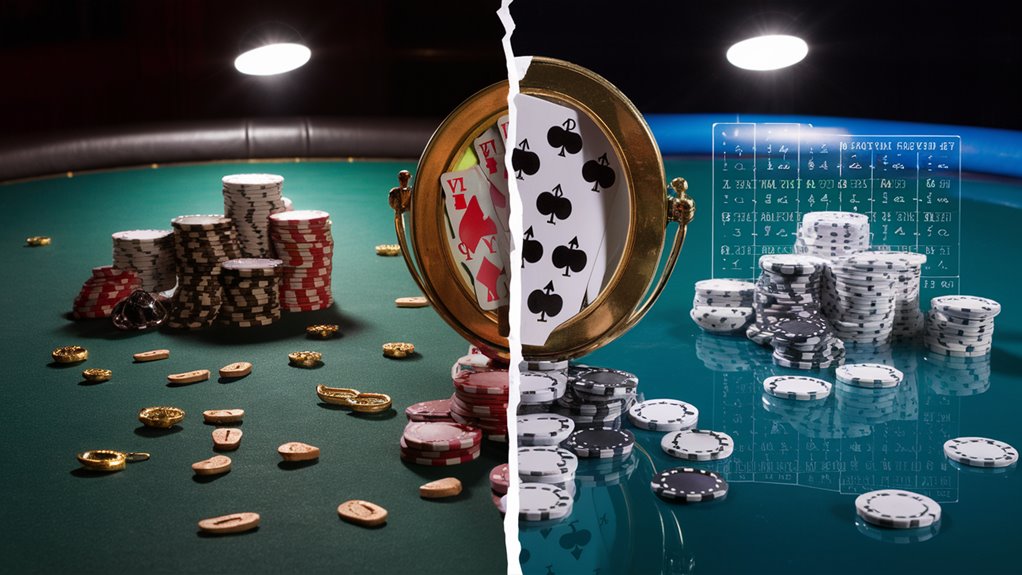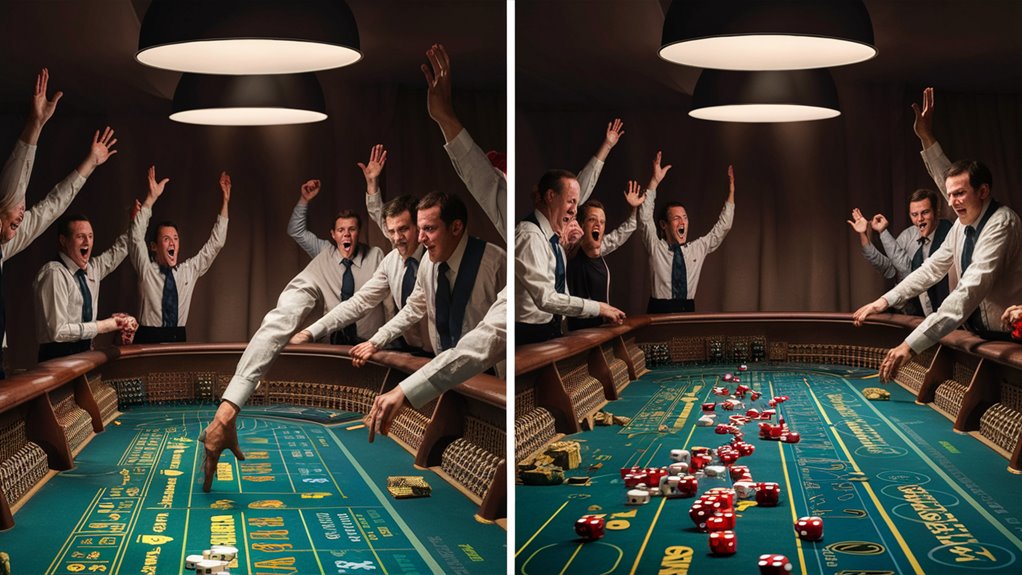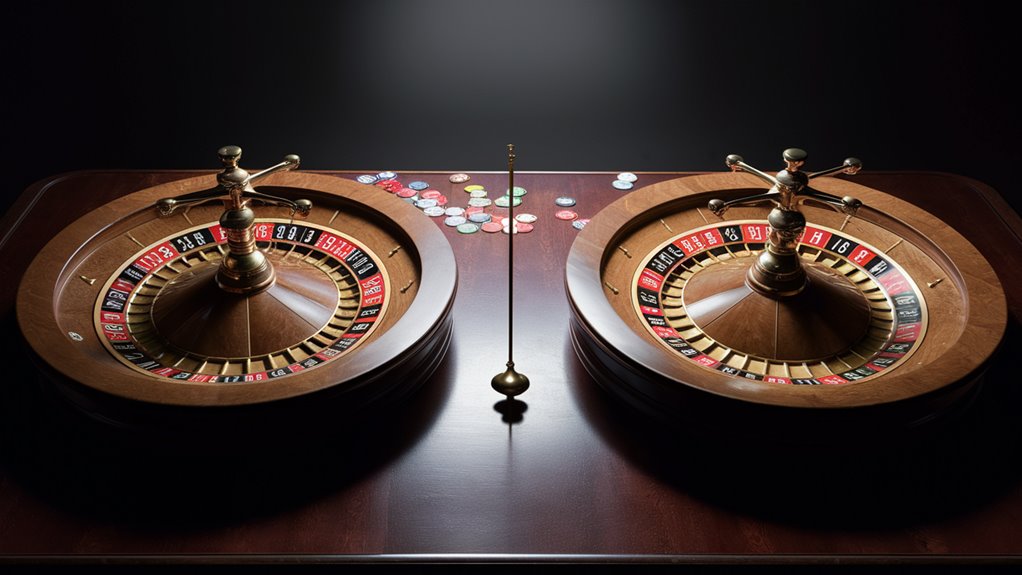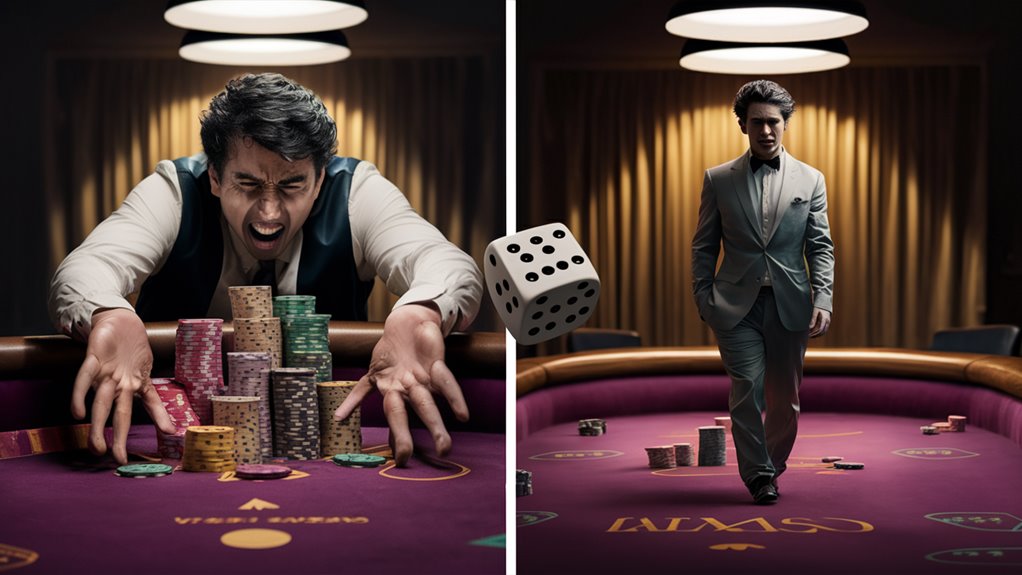
Gambling Myths vs. Facts: The Scientific Truth Behind Casino Games
Understanding Casino Mathematics and Probability
Random probability and mathematical principles govern every aspect of casino operations, creating an unchangeable framework that determines game outcomes. The fundamental truth about gambling lies in understanding that each event operates independently, making it impossible for past results to influence future outcomes.
Common Gambling Misconceptions Debunked
Casino superstitions and betting systems cannot alter the built-in house edge that ensures consistent casino profits. While many players believe in lucky rituals or feel they’re “due” for a win after experiencing losses, these psychological patterns have no impact on game mechanics.
The Truth About Winning Streaks
Statistical distribution patterns explain both winning streaks and near misses in gambling scenarios. These occurrences represent natural variance rather than meaningful trends that players can exploit for profit.
Frequently Asked Questions
Q1: Can previous gambling results predict future outcomes?
No, each gambling event is independent and operates on random probability.
Q2: Do betting systems help beat the house edge?
No betting system can overcome the mathematical advantage built into casino games.
Q3: Are near misses signs of an upcoming win?
Near misses are random events and don’t indicate future winning probability.
Q4: Can certain rituals or behaviors influence gambling outcomes?
Game results are determined solely by mathematical probability, not player actions or beliefs.
Q5: Is there a “right time” to play casino games?
Timing has no impact on game outcomes, as each event operates independently based on fixed mathematical principles.
The Hot Hand Fallacy

Understanding the Hot Hand Fallacy in Gambling
The Psychology Behind Hot Hand Belief
The hot hand fallacy represents one of gambling’s most persistent cognitive biases.
This widespread misconception leads players to believe that winning streaks indicate an increased probability of future wins. Despite its intuitive appeal, this belief fundamentally contradicts the mathematical principles governing games of chance.
Mathematical Reality vs. Perceived Patterns
In probability-based games, each event operates independently of previous outcomes. Consider these key facts:
- A six-sided die maintains a constant 1/6 probability for each number
- Roulette wheels preserve fixed odds regardless of 먹튀검증커뮤니티 past spins
- Slot machine outcomes remain unaffected by previous results
- Card game probabilities reset with each new hand
The Science of Random Events
Statistical analysis consistently demonstrates that perceived “hot streaks” result from natural probability clustering rather than predictable patterns.
Our cognitive architecture actively seeks meaningful sequences within random data, leading to the misinterpretation of chance events.
Common Gambling Misconceptions
Casino players frequently increase their wagers during perceived lucky streaks, demonstrating how the hot hand fallacy influences betting behavior.
This pattern-seeking tendency often results in:
- Increased bet sizes during winning sequences
- Extended playing sessions
- Accumulating losses
- False confidence in prediction abilities
FAQ: Hot Hand Fallacy
Q: Why do people believe in hot hands?
A: Human brains are evolutionarily programmed to recognize patterns, even in random sequences.
Q: Can previous wins predict future gambling success?
A: No, each gambling event is independent and unaffected by prior outcomes.
Q: Does the hot hand exist in any form of gambling?
A: No, true games of chance maintain consistent probabilities regardless of past results.
Q: How does the house edge relate to hot hands?
A: The house edge remains constant and unaffected by winning or losing streaks.
Q: Can understanding the hot hand fallacy improve gambling decisions?
A: Yes, recognizing this cognitive bias helps players make more rational betting choices.
Luck Rituals and Superstitions
Understanding Gambling Superstitions and Luck Rituals
Common Gambling Rituals and Their Psychological Impact
Gambling superstitions persist across cultures and casino floors worldwide, manifesting through various ritualistic behaviors and practices.
Players regularly employ lucky charms, specific clothing items, and precise routines before engaging in games of chance. These behaviors range from wearing fortunate colors to carrying specific trinkets believed to enhance winning potential.
Popular Casino Superstitions Explained
Traditional gambling rituals commonly observed in casinos include:
- Dice manipulation through blowing or specific throwing techniques
- Lucky seat selection at tables and slot machines
- Number avoidance based on cultural beliefs
- Machine selection influenced by previous players’ outcomes
- Entry and exit patterns through specific casino doors
The Science Behind Gambling Superstitions
Random probability governs all casino games, operating independently of any ritualistic behaviors.
Each gaming outcome?whether cards, dice, or slots?functions through mathematical principles rather than supernatural influence.
Confirmation bias reinforces these superstitious beliefs when players selectively remember successful outcomes while discounting losses.
Strategic Alternatives to Superstitious Behavior
Successful gambling relies on:
- Understanding game mechanics and rules
- Mastering probability calculations
- Implementing effective bankroll management
- Maintaining emotional control
- Practicing responsible gaming habits
#
Frequently Asked Questions
Q: Can lucky charms influence gambling outcomes?
A: No, gaming results are determined by random probability and mathematical algorithms.
Q: Why do professional gamblers follow specific rituals?
A: Rituals provide psychological comfort and routine, but don’t affect actual game outcomes.
Q: Do certain casino seats offer better luck?
A: Seat position has no impact on gaming probability or winning potential.
Q: Can previous game results predict future outcomes?
A: Each gaming event is independent and unaffected by prior results.
Q: How can players improve their gambling success?
A: Focus on understanding odds, managing bankroll, and maintaining emotional discipline.
Systems to Beat the House

Beating Casino Systems: A Comprehensive Analysis
Understanding Casino Betting Systems
Gambling systems and betting strategies have captivated players throughout history, promising to overcome the house advantage.
From mathematical progressions to intricate pattern tracking methods, these systems present an alluring facade of control over casino games.
Popular Casino Betting Strategies
The Martingale System
The Martingale betting system involves doubling wagers after each loss, theoretically guaranteeing eventual profit. However, this strategy ultimately fails due to table betting limits and bankroll constraints.
Card Counting in Blackjack
Professional card counting remains one of the few mathematically valid approaches to gaining an edge. Modern casinos employ sophisticated countermeasures including continuous shuffle machines and multi-deck shoes to neutralize these techniques.
Dice Control in Craps
Dice setting techniques claim to influence roll outcomes, but casino regulations and physical variables make consistent execution virtually impossible.
The Mathematics Behind Casino Games
Casino probability operates on the principle of independent events.
The gambler’s fallacy – believing past results influence future outcomes – leads to flawed strategic thinking.
Every casino game incorporates a built-in house edge through its fundamental mathematical structure.
## Frequently Asked Questions
Q: Can betting systems overcome the house edge?
A: No betting system can mathematically overcome the built-in house advantage in games of pure chance.
Q: Is card counting illegal?
A: Card counting isn’t illegal but casinos can ban players they suspect of counting.
Q: Do progressive betting systems work?
A: Progressive systems ultimately fail due to table limits and bankroll requirements.
Q: Can dice control beat craps?
A: While theoretically possible, practical casino conditions make consistent dice control virtually impossible.
Q: Are there any legitimate ways to beat casinos?
A: Select skill-based games like poker against other players offer opportunities for profitable play through superior strategy.
Near Misses and Future Wins
Understanding Near Misses in Gambling: The Psychology and Reality
The Illusion of Almost Winning
Near misses in gambling create powerful psychological effects that can mislead players about their chances of winning.
When slot machine symbols nearly align or lottery numbers miss by a single digit, these close calls trigger strong emotional responses that can distort rational thinking about gambling outcomes.
The Science Behind Near Misses
Random number generators and pure probability govern every gambling event independently. Despite what many players believe, near-miss experiences have zero impact on future results.
Casino games are specifically engineered to produce these almost-wins, capitalizing on the brain’s natural dopamine response to near victories.
Neurological Impact and Behavior
Scientific research demonstrates that near misses activate neural pathways similar to actual wins, creating a powerful psychological reinforcement that encourages continued gambling.
This biological response can lead players to:
- Increase bet sizes after near misses
- Develop false beliefs about winning patterns
- Experience heightened gambling motivation
- Misinterpret random events as meaningful signals
Common Questions About Near Misses
Q: Do near misses indicate an upcoming win?
A: No, each gambling event is completely independent of previous outcomes.
Q: Why do slot machines show so many near misses?
A: Casinos deliberately program games to display near misses to encourage continued play.
Q: Can tracking near misses help predict future wins?
A: No, gambling outcomes are random and can’t be predicted by past results.
Q: Do progressive jackpots become more likely after near misses?
A: No, progressive jackpot odds remain constant regardless of previous results.
Q: How can players avoid near-miss fallacy?
A: Understand that each game event is independent and near misses have no predictive value.
Chasing Losses

Understanding the Psychology of Chasing Losses in Gambling
The Dangerous Cycle of Loss Recovery
Chasing losses represents one of the most hazardous behaviors in gambling psychology.
This destructive pattern emerges when gamblers attempt to recover their losses through continued betting, often escalating their wagers to dangerous levels.
The consequences of this behavior can lead to severe financial damage and psychological distress.
Statistical Reality Behind Loss Chasing
Mathematical probability clearly demonstrates why chasing losses fails as a strategy.
Every gambling event operates independently, with the house edge remaining constant regardless of previous outcomes.
This fundamental principle means that increasing bets after losses doesn’t improve winning odds – it only amplifies potential losses.
Breaking the Loss-Chasing Cycle
The most effective gambling strategy involves:
- Setting and maintaining strict betting limits
- Recognizing emotional triggers that lead to chase behavior
- Understanding that gambling is entertainment, not income
- Implementing strong bankroll management
- Accepting losses as part of the experience
Common Questions About Chasing Losses
Q1: Why do people chase gambling losses?
Emotional reactions and the false belief that luck must eventually turn around drive this behavior.
Q2: How can I prevent myself from chasing losses?
Set strict betting limits beforehand and stick to them regardless of outcomes.
Q3: What’re the warning signs of chase behavior?
Increasing bet sizes after losses, borrowing money to gamble, and feeling compelled to win back losses immediately.
Q4: Is it ever possible to recover gambling losses by betting more?
No, this strategy typically leads to deeper losses due to the consistent house edge.
Q5: How does the house edge affect loss chasing?
The house edge ensures that extended gambling sessions typically result in losses, making chase behavior mathematically unsound.



